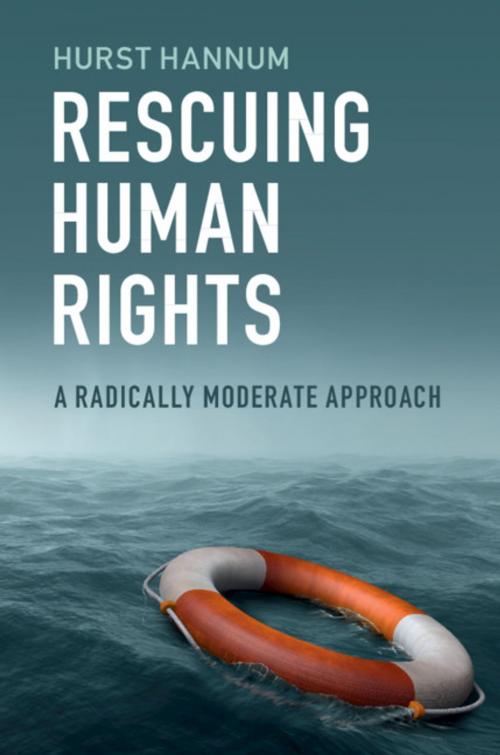Rescuing Human Rights
A Radically Moderate Approach
Nonfiction, Reference & Language, Law, International, Social & Cultural Studies, Political Science| Author: | Hurst Hannum | ISBN: | 9781108278577 |
| Publisher: | Cambridge University Press | Publication: | February 14, 2019 |
| Imprint: | Cambridge University Press | Language: | English |
| Author: | Hurst Hannum |
| ISBN: | 9781108278577 |
| Publisher: | Cambridge University Press |
| Publication: | February 14, 2019 |
| Imprint: | Cambridge University Press |
| Language: | English |
The development of human rights norms is one of the most significant achievements in international relations and law since 1945, but the continuing influence of human rights is increasingly being questioned by authoritarian governments, nationalists, and pundits. Unfortunately, the proliferation of new rights, linking rights to other issues such as international crimes or the activities of business, and attempting to address every social problem from a human rights perspective risk undermining their credibility. Rescuing Human Rights calls for understanding 'human rights' as international human rights law and maintaining the distinctions between binding legal obligations on governments and broader issues of ethics, politics, and social change. Resolving complex social problems requires more than simplistic appeals to rights, and adopting a 'radically moderate' approach that recognizes both the potential and the limits of international human rights law, offers the best hope of preserving the principle that we all have rights, simply because we are human.
The development of human rights norms is one of the most significant achievements in international relations and law since 1945, but the continuing influence of human rights is increasingly being questioned by authoritarian governments, nationalists, and pundits. Unfortunately, the proliferation of new rights, linking rights to other issues such as international crimes or the activities of business, and attempting to address every social problem from a human rights perspective risk undermining their credibility. Rescuing Human Rights calls for understanding 'human rights' as international human rights law and maintaining the distinctions between binding legal obligations on governments and broader issues of ethics, politics, and social change. Resolving complex social problems requires more than simplistic appeals to rights, and adopting a 'radically moderate' approach that recognizes both the potential and the limits of international human rights law, offers the best hope of preserving the principle that we all have rights, simply because we are human.















